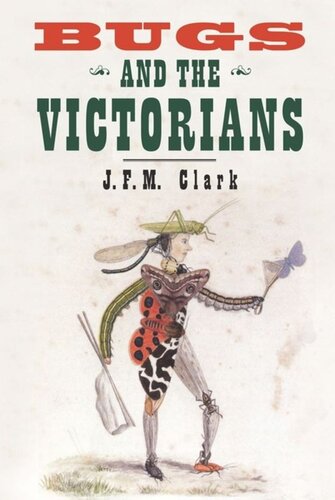

Most ebook files are in PDF format, so you can easily read them using various software such as Foxit Reader or directly on the Google Chrome browser.
Some ebook files are released by publishers in other formats such as .awz, .mobi, .epub, .fb2, etc. You may need to install specific software to read these formats on mobile/PC, such as Calibre.
Please read the tutorial at this link: https://ebookbell.com/faq
We offer FREE conversion to the popular formats you request; however, this may take some time. Therefore, right after payment, please email us, and we will try to provide the service as quickly as possible.
For some exceptional file formats or broken links (if any), please refrain from opening any disputes. Instead, email us first, and we will try to assist within a maximum of 6 hours.
EbookBell Team

5.0
18 reviewsIn the wake of the Scientific Revolution, the impulse to name and classify the natural world accelerated, and insects presented a particularly inviting challenge. This lively book explores how science became increasingly important in nineteenth-century British culture and how the systematic study of insects permitted entomologists to engage with the most pressing questions of Victorian times: the nature of God, mind, and governance, and the origins of life.
By placing insects in a myriad of contextspolitics, religion, gender, and empireJohn F. McDiarmid Clark demonstrates the impact of Victorian culture on the science of insects and on the systematic knowledge of the natural world. Through engaging accounts of famous and eccentric innovators who sought to define social roles for themselves through a specialist study of insectsamong them a Tory clergyman, a banker and member of Parliament, a wealthy spinster, and an entrepreneurial academicClark highlights the role of insects in the making of modern Britain and maintains that the legacy of Victorian entomologists continues to this day.